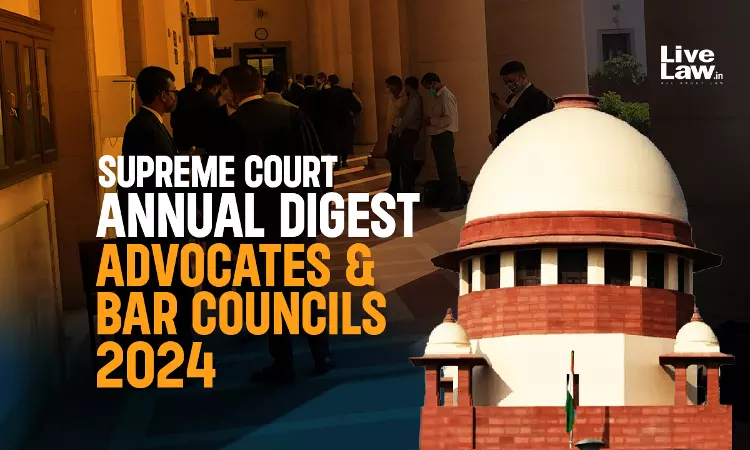Supreme Court Annual Digest 2024 - Advocates & Bar Councils
LIVELAW NEWS NETWORK
7 Jan 2025 5:53 PM IST

Next Story
7 Jan 2025 5:53 PM IST
AdvocateAdvocates-on-Record can mark the appearances of only those advocates who are authorized to appear and argue the case on a particular day of hearing. Bhagwan Singh v. State of U.P., 2024 LiveLaw (SC) 722 : AIR 2024 SC 4785After the change of power from one political party to another, the States/Union Territories are changing their panel of Advocates appearing in the Court. The Court...
